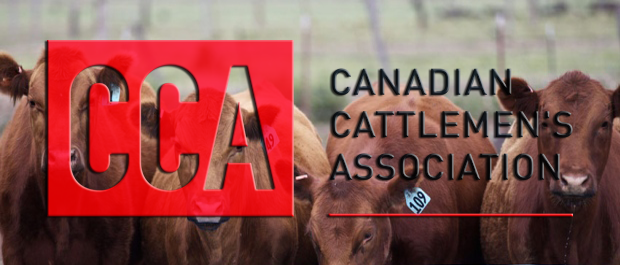CCA Reviews The New Food Guide

The Canadian Cattlemen’s Association (CCA) has reviewed the new Canada’s Food Guide released by Health Canada. Lean red meat, such as beef, is rightfully acknowledged as a nutrient rich and healthy protein in the new food guide
by Dan Singleton
One of the biggest changes in the new food guide, last updated in 2007, is to group plant-based and animal-based proteins in a “proteins” category. In urging the consumption of more plant-based proteins over animal sources of protein on a daily basis, Health Canada missed an opportunity to inform Canadians of the nutritional benefits of eating lean beef as a protein source.
” CCA supports the food guide’s recommendations to eat whole foods and cooking and eating with friends and family”
It would be unfortunate if Canadians interpret this bias toward plant-based proteins as a signal to remove red meat from their diets. Dietary advice to reduce red meat consumption could put some Canadians at risk of iron, zinc, vitamin B12 deficiencies and inadequate protein intake.
A small amount of lean beef can provide high-quality, readily available protein and many other nutrients with relatively low calories. Many essential nutrients are found in beef including high-quality, complete protein, all essential amino acids, readily available iron and zinc and others such as riboflavin, niacin, selenium and vitamins B6 and B12.
Furthermore, when meat and plant food sources of iron are eaten together, the absorption of non-heme iron from the plant foods is enhanced by 150 per cent, a benefit known as “The Meat Factor.”
The CCA appreciates the food guide’s focus on food waste reduction as a concrete action that consumers can take with regard to sustainable food choices. Indeed, Canada is a great place to grow beef and is perhaps one of the most sustainable agriculture systems in the world.
In many places in Canada, raising cattle is the best and most environmentally beneficial use of the land.
Further, Canadian farmers and ranchers are leaders in environmental stewardship and sustainability. Raising beef cattle in Canada accounts for 2.4 per cent of Canada’s greenhouse gas (GHG) emissions. On a global scale, GHG emissions from Canadian beef production accounts for 0.04 per cent of global GHG emissions — one of the lowest greenhouse gas footprints in the world.
Finally, CCA supports the food guide’s recommendations to eat whole foods and cooking and eating with friends and family. Canadians can continue to enjoy Canadian beef on their plate, a sustainable, locally grown, high nutrient product as part of their varied diets.
Source: Alberta Beef Producers












